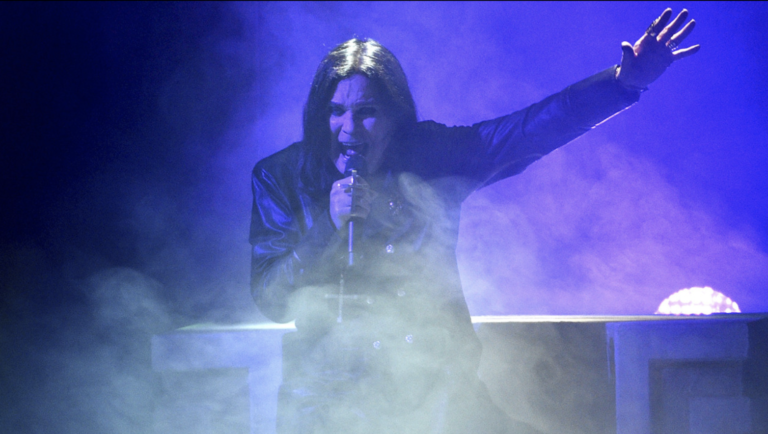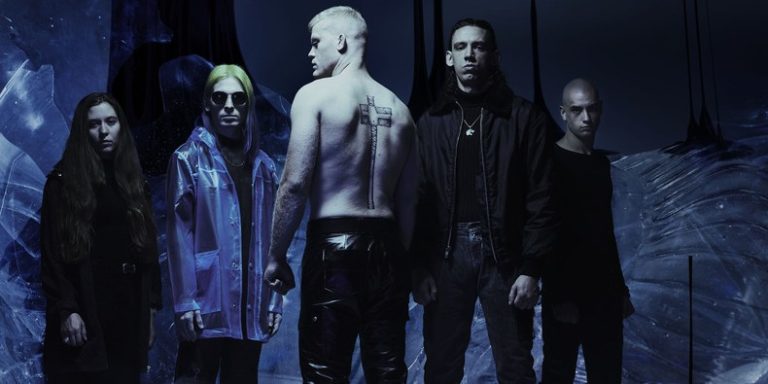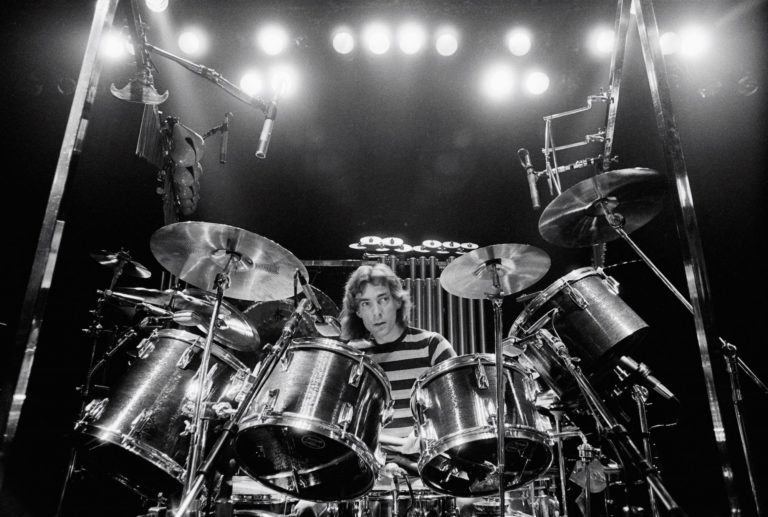10 HEAVIEST VIDEO GAME SOUNDTRACKS via Revolver Magazine
The special relationship between heavy music and video games was forged back in the Eighties, as some of the first generations of programmers worked long into the night with Judas Priest, Motörhead and Iron Maiden in tow. Honestly, how could you soundtrack the power fantasies of the industry with anything else? In Doom, a lonely space marine journeyed to the depths of hell to assassinate Beelzebub himself. Duke Nukem could’ve been plucked directly from The Dirt. Brütal Legend was designed specifically to appease the legend of Tim Schafer’s favorite metal bands, and the world at large was introduced to DragonForce through Guitar Hero.
And so, in 2019 there’s a humongous catalog of great video game music to choose from. There’s the classics — the MIDIfied guitar squeals of the Eighties and Nineties that first gave this industry its own digital dissonance — but in recent years a huge swell of independent creators have hit the space, redefining both games, (and the music that’s in them,) right below our feet. With Doom composer Mick Gordon recently recording with a “Heavy Metal Choir” for an upcoming project, we’ve tried to capture the best of both worlds in our choices for the 10 heaviest video game soundtracks of all time.
Quake
What was the moment video games truly went mainstream? Maybe in 1996, when a Dallas-based studio called Id was suddenly rich off of Doom and Wolfenstein, and enlisted Trent Reznor to do the soundtrack for their next project, Quake. Nine Inch Nails were already one of the biggest bands in the world in the mid-Nineties, so Quake embraced the panic-attack mania that Reznor is uniquely capable of delivering. 23 years later, and game soundtracks are still in its shadow.
DOOM
Mick Gordon’s soundtrack for the 2016 reboot of Doom embraced all the gruesome excess that made the groundbreaking FPSes so memorable. The first game, released back in 1993, boiled down garish, Rhoads-ian riffage to its bare essentials to fit on primitive MS-DOS cabinets. Gordon, however, spared no expense. Blackened synth, earthquake power-chords, and some glitchy, tech-damaged atmospheric pressure that makes the player feel that they’re very much in hell.
Splatterhouse
Splatterhouse was one of those relics from the video game business’ early period, where a cartoony masked slasher and some Todd McFarlane art was cause for moral indignation. (The game is frequently cited by NRA president Wayne LaPierre, as evidence of our cultural corrosion.) The 2010 remake leaned all the way into that reputation with a licensed soundtrack that’s honestly an excellent snapshot of where metal was in the late 2000s. High On Fire, Mastodon, and Municipal Waste all shared real estate – it reads like a great Ozzfest bill.
Brütal Legend
When Tim Schafer was designing Brütal Legend, he said he wanted every landscape to look like an ’80s metal record sleeve. He accomplished that in spades; there aren’t many video games that feature electric guitar stone sculptures. But don’t count out the soundtrack, either. With cameos from Lemmy, Ozzy, and Lita Ford, it’s entirely unsurprising how much weight composer Peter McConnell injected into the margins. (A natural pairing to the massive 107-song long licensed catalog.)
Rock ‘N Roll Racing
Years before Blizzard was an international megacorp fielding some of the most beloved (and profitable) franchises in gaming, they were a tiny studio, struggling for relevance, releasing small, workmanlike cartridges for the Super Nintendo. Most of them were forgettable, but pour one for Rock ‘N Roll Racing, and some of the sickest guitar licks ever converted to MIDI.
Twisted Metal
Twisted Metal is a video game where a demonic clown outfits his ice cream truck with machine guns and rocket launchers in order take aim at a man stuck between two monster truck wheels. It’s a premise that would make for a good Judas Priest song, so naturally, the series has perennially served up some loud, angry, bloody metal that manages to stand toe-to-toe with the flagrant absurdity of its characters. Our favorite might be 2001’s Twisted Metal Black, which graciously embraced the pulverising industrial clamor that was concurrently dominating the rock charts.
God of War
When God of War made its return last year, the game traded in its enshrined over-the-top ideology for a sadder, more poignant, more personal character study of Kratos and the legacy he had wrought. It is the best game of the series, but we should never forget the wonderfully intense orchestral screech of the first three games in the series. It’s a comic-book tribute to the vengeance of a Spartan – woefully unchill and uncompromising from every angle. No matter what happens from here, we’ll always be a fan of Kratos’ angry teenaged years.
Halo
The defining Halo aesthetic is an endless expanse of vibrant, organic arcadia, dotted with stupefyingly advanced ancient alien architecture stretching to the sky. Similarly, when Martin O’Donnell drummed up his instantly iconic score, he gave us ghostly choirs, baroque strings, and a fanged electric guitar soaking up the spotlight. It was weird, off-kilter, and unanimously badass. Decades later, it’s hard to imagine a galactic warfront sounding any different.
Thumper
The genre tag that Thumper‘s developers bestowed upon their flagship product was “rhythm violence.” Yes, it was a rhythm game, in the general Guitar Hero/Rock Band tradition, but the music here was charred, monolithic, and sometimes downright evil. The imagery: 500-foot obsidian drums, gut-squelching synth, gunshots, shards of broken glass. It’s like a Haxan Cloak album distilled into a video game. No surprise that Brian Gibson, of the Providence noise-rock institution Lightning Bolt, was behind the boards.
Metal Gear Rising Revengeance
Metal Gear Solid, as a series, emphasizes cold war cloak-and-dagger and painfully serious orchestral swells on its soundtracks, so maybe it’s no surprise that when the franchise moved to the unhinged team at PlatinumGames, they happily leaned into the fundamental stupidity that makes these games so wonderful. In Metal Gear Rising Revengeance You play deranged cyborg-ninja Raiden, and slice through hundreds and hundreds of enemies to minutes-long guitar solos that seem to last as long as the levels. It’s both awesome and dumb as hell, and it makes you consider an alternate history where the rest of Metal Gearwas a little more in on the joke.




